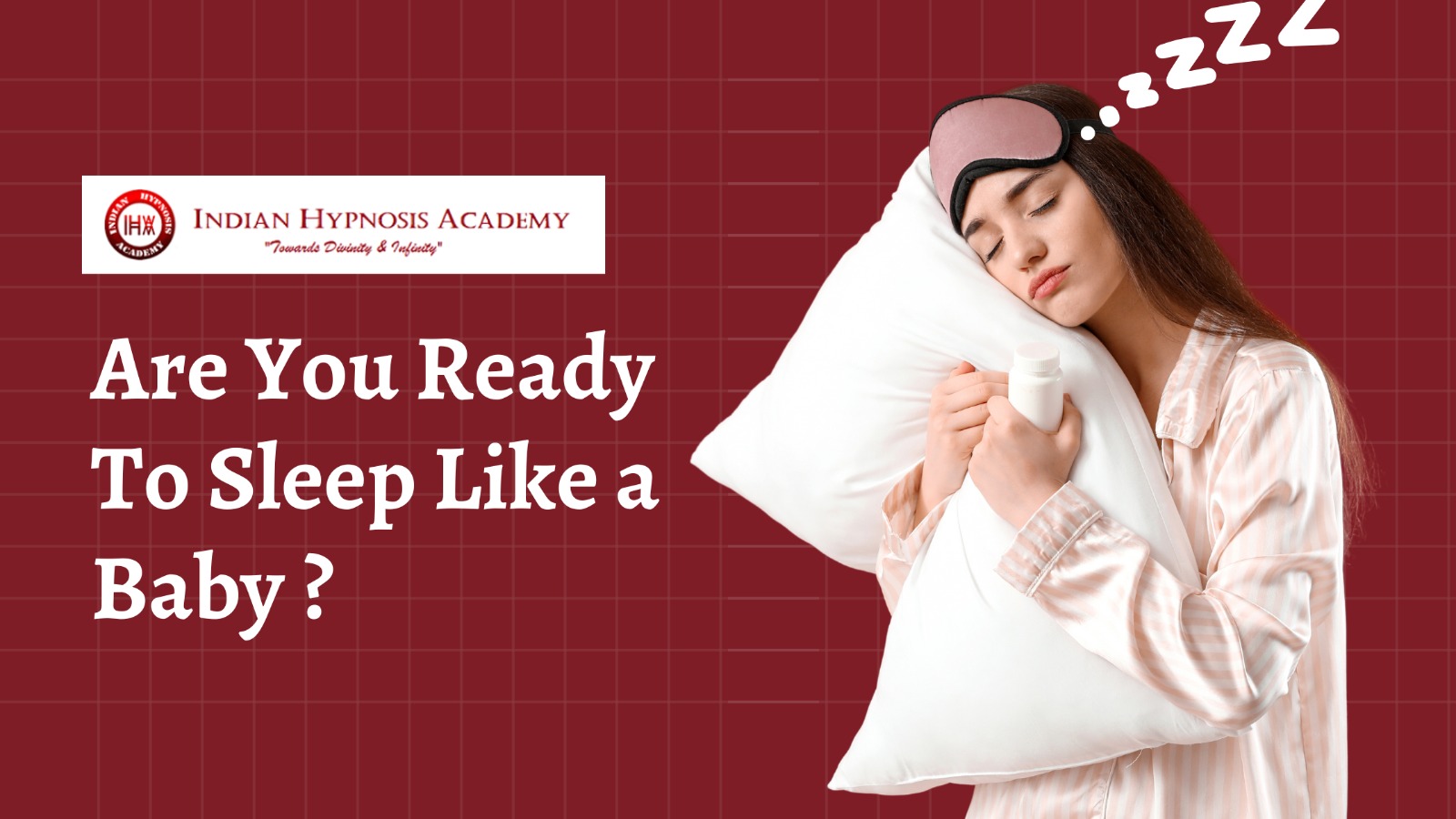Sleep is an essential part of our lives, and getting enough quality sleep is crucial for our overall health and well-being.If you’re one of those people, you may be wondering if there’s anything you can do to improve your sleep and wake up feeling refreshed and energized. The good news is that there are many things you can do to improve your sleep and start sleeping like a baby.
Establish a Consistent Sleep Schedule
As previously mentioned, a consistent sleep schedule can help regulate your body’s internal clock, which is responsible for releasing hormones that help you feel awake during the day and tired at night. In addition to going to bed and waking up at the same time every day, it’s also important to avoid napping during the day, as this can disrupt your sleep cycle.
If you find it difficult to fall asleep at your scheduled bedtime, try engaging in relaxing activities before bed, such as taking a warm bath or reading a book. You can also try drinking a warm cup of herbal tea, such as chamomile, which has calming properties that can help promote relaxation.
Create a Sleep-Conducive Environment
Creating a sleep-friendly atmosphere is crucial for ensuring a restful night’s sleep. In addition to keeping your bedroom cool, quiet, and dark, it’s important to make sure that your mattress and pillows are comfortable and supportive. A mattress that is too soft or too firm can cause discomfort and interfere with your sleep.
To ensure that your bedroom is dark, consider using blackout curtains or an eye mask. You can also use a white noise machine to create a soothing background noise that can help you fall asleep faster.
Reduce Your Exposure to Electronics Before Bedtime
Reducing your exposure to electronics before bedtime is an important step in improving the quality of your sleep. Electronics emit blue light, which can interfere with the production of melatonin, a hormone that regulates sleep. Exposure to blue light before bedtime can make it difficult to fall asleep and can disrupt the natural sleep cycle.
To reduce your exposure to electronics before bedtime, it’s important to establish a bedtime routine that doesn’t involve screens. Start by setting a specific time to turn off all electronics, such as your phone, tablet, or laptop, at least an hour before bedtime. This will help your body start to wind down and prepare for sleep.
Instead of using electronics, consider engaging in relaxing activities before bedtime. You might try reading a book, listening to calming music, or practicing yoga or meditation. These activities can help to calm your mind and reduce stress, making it easier to fall asleep.
It’s also important to avoid using electronics in bed, as this can create a psychological association between your bed and wakefulness. Instead, reserve your bed for sleep and sex only. This will help your body associate your bed with relaxation and sleep, making it easier to fall asleep when you get into bed.
If you must use electronics before bedtime, consider using blue light filters on your devices or wearing blue light-blocking glasses. These filters and glasses can help to reduce your exposure to blue light and improve the quality of your sleep.
Engage in Regular Exercise
Regular exercise can help reduce stress and anxiety, which can interfere with sleep. In addition to reducing stress, exercise can also increase the amount of deep sleep that you get, which is important for physical and mental restoration.
When engaging in exercise, it’s important to find a type of exercise that you enjoy and that is appropriate for your fitness level. You can also try varying the intensity and duration of your workouts to prevent boredom and avoid overexertion.
Limit Caffeine and Alcohol Intake
Caffeine is a stimulant that can interfere with sleep, so it’s important to limit your consumption of caffeinated beverages, such as coffee, tea, and soda. If you do consume caffeine, it’s best to do so earlier in the day, as it can stay in your system for several hours.
Alcohol, on the other hand, may help you fall asleep faster, but it can also disrupt your sleep later in the night. This is because alcohol can cause you to wake up frequently during the night and reduce the amount of deep sleep that you get.
Practice Relaxation Techniques
Relaxation techniques can help reduce stress and anxiety, making it easier for you to fall asleep and stay asleep throughout the night. Deep breathing, meditation, and progressive muscle relaxation are all effective relaxation techniques that you can try.
When practicing deep breathing, it’s important to focus on your breath and try to clear your mind of any thoughts or distractions. If your thoughts begin to drift away, softly guide your attention back to your breathing.
Meditation involves focusing your attention on a particular object, sound, or image, and letting go of any thoughts or distractions that may arise. It’s important to find a quiet place where you won’t be disturbed when practicing meditation.
Progressive muscle relaxation is a technique that involves intentionally tensing and then releasing various muscle groups in your body. This process can help you to identify and release any built-up tension or stress, which can promote feelings of relaxation and calmness.
Seek Professional Help
If you have tried these strategies and are still having trouble sleeping, it may be time to seek professional help. Your healthcare provider can help determine if there is an underlying medical condition or sleep disorder that may be affecting your sleep. They may also recommend cognitive-behavioral therapy for insomnia (CBT-I), a type of therapy that focuses on changing negative thoughts and behaviors that can interfere with sleep.
CBT-I can help you learn new techniques for managing stress and anxiety, improve your sleep habits, and reduce negative thoughts and behaviors that can interfere with sleep. This type of therapy may involve keeping a sleep diary to track your sleep patterns, practicing relaxation techniques, and gradually adjusting your sleep schedule.
Conclusion
It is crucial for our physical and mental well-being to have a restful sleep at night. You can achieve this by maintaining a regular sleep routine, creating an environment that is conducive to sleep, decreasing exposure to electronic devices before bedtime, incorporating physical activity into your routine, restricting the consumption of caffeine and alcohol, practicing relaxation techniques, and seeking expert guidance when required. By following these guidelines, you can enhance your sleep quality and wake up feeling revitalized and alert. Therefore, are you prepared to sleep like an infant? Begin implementing these techniques right away and experience the advantages of a sound sleep.
Frequently Asked Questions (FAQs)
1. Why is sleep important for our physical and mental health?
Sleep is essential for our physical and mental health because it helps our body repair and restore itself. It also helps to regulate our mood, improve our memory and cognitive function, and support a healthy immune system.
2. How much sleep do we need each night?
The amount of sleep we need each night can vary based on our age and individual needs. Adults typically need between 7-9 hours of sleep per night, while children and adolescents may need more.
3. How can creating a sleep-conducive environment improve our sleep?
Creating a sleep-conducive environment can help to promote relaxation and make it easier to fall asleep. This may include creating a cool, dark, and quiet sleeping environment, using comfortable bedding, and eliminating distractions such as electronics.
4. How can exercise help improve our sleep?
Regular exercise can help to reduce stress, improve mood, and regulate the sleep-wake cycle. It can also help to reduce the risk of developing sleep disorders such as insomnia and sleep apnea.
5. Can caffeine and alcohol affect our sleep quality?
Yes, caffeine and alcohol can both affect our sleep quality. Caffeine is a stimulant that can make it difficult to fall asleep, while alcohol can disrupt the natural sleep cycle and lead to fragmented sleep.
6. How can relaxation techniques such as deep breathing and progressive muscle relaxation help improve our sleep?
Relaxation techniques can help to promote relaxation and reduce stress and anxiety, which can make it easier to fall asleep. Deep breathing and progressive muscle relaxation are two techniques that can be particularly effective at promoting relaxation.
7. What is cognitive-behavioral therapy for insomnia (CBT-I)?
CBT-I is a type of therapy that focuses on changing negative thoughts and behaviors that can interfere with sleep. It may involve keeping a sleep diary, practicing relaxation techniques, and gradually adjusting your sleep schedule.
8. How can reducing exposure to electronics before bedtime improve our sleep?
Reducing exposure to electronics before bedtime can help to reduce exposure to blue light, which can interfere with the production of melatonin and disrupt the natural sleep cycle. It can also help to create a bedtime routine that promotes relaxation and prepares the body for sleep.
9. How can creating a consistent sleep schedule improve our sleep?
Creating a consistent sleep schedule can help to regulate the body’s internal clock and make it easier to fall asleep and wake up at the same time each day. This can help to promote better sleep quality and reduce the risk of developing sleep disorders.
10. What are some common sleep disorders?
Some common sleep disorders include insomnia, sleep apnea, restless leg syndrome, and narcolepsy. These disorders can interfere with the quality and duration of sleep, leading to daytime fatigue and other health problems.
11. How can keeping a sleep diary help improve our sleep?
Keeping a sleep diary can help to identify patterns and behaviors that may be interfering with sleep. This can help to guide the development of a personalized sleep plan and improve the quality of sleep over time.
12. How can blue light filters and blue light-blocking glasses help improve our sleep?
Blue light filters and blue light-blocking glasses can help to reduce exposure to blue light, which can interfere with the production of melatonin and disrupt the natural sleep cycle. This can improve the quality of sleep and make it easier to fall asleep and stay asleep.
13. Can sleep medications be helpful for improving sleep quality?
Sleep medications can be helpful for improving sleep quality in some cases, but they should be used with caution and under the guidance of a healthcare provider. Some medications can have side effects and may not be appropriate for everyone.
14. How long does it take to establish a new sleep routine?
Establishing a new sleep routine can take time and may require some trial and error. Generally, it is recommended to stick to a new sleep routine for at least 2-3 weeks before evaluating its effectiveness.
15. What should I do if I continue to have trouble sleeping despite making lifestyle changes?
If you continue to have trouble sleeping despite making lifestyle changes, it may be helpful to speak with a healthcare provider.
References
- https://www.sleepfoundation.org/sleep-hygiene/how-to-reset-your-sleep-routine
- https://www.cdc.gov/niosh/emres/longhourstraining/environment.html
- https://healthline.com/health-news/it-might-not-be-the-coffee-that-causes-you-to-wake-up-during-the-night
- https://hopkinsmedicine.org/health/wellness-and-prevention/exercising-for-better-sleep
- https://www.cdc.gov/sleep/about_sleep/how_much_sleep.html




